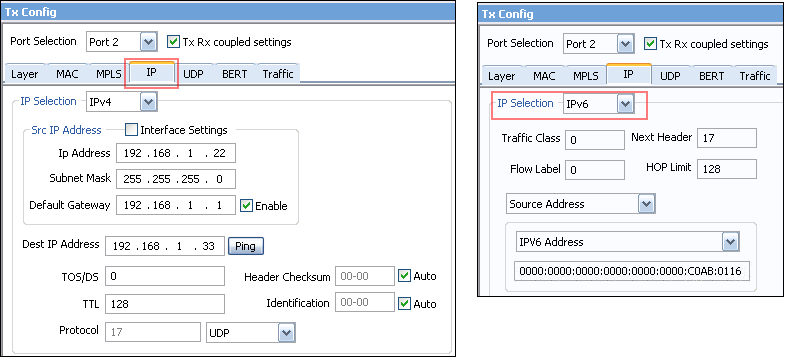

- #CHECKSUM CALCULATOR DESTINATION PORT LENGTH VERIFICATION#
- #CHECKSUM CALCULATOR DESTINATION PORT LENGTH PC#
The checksum field is the 16 bit one's complement of the one'sĬomplement sum of all 16 bit words in the header and text. Since RFC 768 indicates that, “This checksum procedure is the same as is used in TCP.", you might also want to have a look at RFC 793 TRANSMISSION CONTROL PROTOCOL, where the Checksum field is described as follows: Checksum: 16 bits An all zero transmittedĬhecksum value means that the transmitter generated no checksum (forĭebugging or for higher level protocols that don't care). If the computed checksum is zero, it is transmitted as all ones (theĮquivalent in one's complement arithmetic). This checksum procedure is the same as is used in TCP. This information gives protection against misrouted datagrams. Source address, the destination address, the protocol, and the UDP The pseudo header conceptually prefixed to the UDP header contains the Pseudo header of information from the IP header, the UDP header, and theĭata, padded with zero octets at the end (if necessary) to make a If you’re interested in the UDP Checksum, refer to RFC 768 User Datagram Protocol, where you’ll find: Checksum is the 16-bit one's complement of the one's complement sum of a Protocol enforced data correctness such applications could not beįor implementations of the Internet Checksum, refer to RFC 1071 Computing the Internet Checksum along with its Errata, RFC 1141 Incremental Updating of the Internet Checksum and RFC 1624 Computation of the Internet Checksum via Incremental Update, which corrects a mistake made in RFC 1141. There are some applications where a few data bit errors areĪcceptable while retransmission delays are not. This checksumĪt the internet level is intended to protect the internet header For example, a reduction of the time to live, additions orĬhanges to internet options, or due to fragmentation. The internet header checksum is recomputed if the internet header isĬhanged. Indicates it is adequate, but it is provisional and may be replacedīy a CRC procedure, depending on further experience. This is a simple to compute checksum and experimental evidence For purposes ofĬomputing the checksum, the value of the checksum field is zero. The checksum algorithm is: The checksum field is the 16 bit one's complement of the one'sĬomplement sum of all 16 bit words in the header. (e.g., time to live), this is recomputed and verified at each point Internet Header Format Header Checksum: 16 bitsĪ checksum on the header only. If the header checksum fails, the internetĭatagram is discarded at once by the entity which detects the error.ģ.1. In processing internet datagram has been transmitted correctly.
#CHECKSUM CALCULATOR DESTINATION PORT LENGTH VERIFICATION#
Operation The Header Checksum provides a verification that the information used For further reading, refer to RFC 791 INTERNET PROTOCOL:ġ.4. To be clear, the IP Header Checksum helps protect against errors in the IP header only, and not with errors in the payload. Memcpy((char*)(pData + 40), &un16TempChecksum, sizeof(uint16_t))
UnChecksum += *reinterpret_castIf (len) // if total lenght the data is odd
PD16 = reinterpret_castSize_t len = unDataLen - CommonHelper::DATAGRAME_DATA_OFFSET // 42 is the Ethernet header
PD16 = reinterpret_cast
handle data lenght, from IP layer to udp data layer
 PD8 = reinterpret_cast
PD8 = reinterpret_cast#CHECKSUM CALCULATOR DESTINATION PORT LENGTH PC#
UnChecksum += _byteswap_ushort(*pD16++) // since wireshark file is big-endian, but c++ in PC is little-endian
PD16 = reinterpret_castHere is what I do for the UDP checksum: void ReCalculateCheckSum_UDP_Pkt(u_char* pData, unsigned int unDataLen) Memcpy((char*)(pData + 24), &un16TempChecksum, sizeof(uint16_t)) Un16TempChecksum = _byteswap_ushort(un16TempChecksum)
Uint16_t un16TempChecksum = static_castUnChecksum = (unChecksum & 0xffff) + (unChecksum > 16)
PD16 = reinterpret_castHere is what I do for IP Header checksum: void ReCalculateCheckSum_IPHeader(u_char* pData) I have tried to search on the web but what I found is the check sum calculation for the whole UDP packet which seems not the same checksum that I am asking for on the above. I have a udp packet captured through multicast channel and I found that there is a Header checksum under Internet Protocol Version 4.


 0 kommentar(er)
0 kommentar(er)
